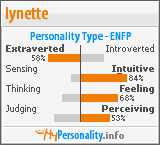Iraq Veterans speak out
>> Tuesday, November 11, 2008

RICKY CLOUSING
Army Interrogator, from Seattle, Washington
In Iraq I operated on a tactical interrogation team while attached to tactical infantry units. Throughout my training, very appropriate guidelines for the treatment of prisoners were set. However, I witnessed the baseless incarceration and harassment of Iraqi civilians in addition to an innocent teenager that was shot before me. I saw firsthand the abuse of power that goes without accountability.
Eventually, I began to ask my unit the same questions I had been asking myself. Wearing the uniform demands subordination to your superiors and the orders passed down. But what if those orders violate morality, ethics, and even legality? If those orders go unquestioned down the chain of command, are we exempt from reevaluating them?
Finally I came to the conclusion that I could not train or be trained under a false pretense of fighting for freedom. We as Americans have found ourselves in a peculiar era where we have traded humanity for a patriotism. We're trading our civil liberties for a false sense of security. In the the words of Henry David Thoreau… we must not lend ourselves to the same evil which we condemn.
 GARETT REPPENHAGEN
GARETT REPPENHAGENArmy Scout & Sniper, from Manitou Springs, Colorado
After serving as a U.S. Army cavalry scout and sniper in Iraq, I now suffer from post-traumatic stress disorder, as do many of the people I served with. Recall where you were last year today, and now try to imagine the last entire year you were in a combat zone in Iraq. Imagine you are in constant danger from hidden road-side bombs and exposed to ambushes and sniper fire. Imagine that your home is constantly harassed with mortar explosions and rocket attacks while you try to sleep. Imagine you witnessed your closest friend being torn apart by enemy fire. Imagine you discover that the person you thought was an insurgent that you killed turns out to be an innocent child, or some one who looks similar to your own mother.
For many decades, we have seen the dire impacts of war on those who serve and those who are close to them. I don't understand why the VA has no plans for addressing the needs of the thousands of veterans like me who have served our country proudly and now find ourselves without the help we need. Despite being in the middle of two wars, our government is actually scaling back on services that are critical to the men and women trying to re-enter civilian society.
 DARRELL ANDERSON
DARRELL ANDERSONArmy 1st Armored Division, from Lexington, Kentucky
I went AWOL from the military and spent two years in exile. In October 2006, I came back and turned myself in at Fort Knox.
I am not politically anti-war. I didn't go to Canada to talk about politics. I went to talk about war crimes. Because no matter what we're doing or what we're trying, it's inevitable that if you participate in an occupation, you will commit war crimes. Even in World War II, or any of the just wars we speak of, we killed innocent people.
From my experience in Iraq, I believe there is no way I could go back to Iraq and follow procedures without killing innocent people, committing war crimes, and eventually reaching a point where I'd commit massacres because enough of my friends had died.
It is my duty as a solider to refuse this illegal war and refuse to commit war crimes. And it is my right as a human being to choose not to kill innocent people.
Bringing the War Home
The soldiers most often heard in the media say some variation of: “We've got a job to do, and I am here to do it.” But an increasing number of veterans disagree with U.S. military involvement in Iraq. “The real issue I want to raise is why are we there in the first place,” says former Marine Captain Anuradha Bhagwati. “Why is it so easy to get Americans to believe that military use of force is the only way to feel satisfied, secure, or whole?”
The stories soldiers tell us can also challenge our own culture, assumptions, and societal beliefs.
I am ashamed and embarrassed, because I joined the Marines to prove myself,” says Bhagwati. “This is a very American thing: be all you can be. I wanted to do something where I was better than others. That's my personal growth, but at whose expense? At the expense of people in villages around the world. It's not the way I hope humans can become fulfilled.
Most Americans will never serve in Iraq, but if we choose to hear the stories told by veterans, the war may finally penetrate the American consciousness. When that happens, veterans of this war can help us to collectively end it.




























3 comments:
So very sad!
No one could ever understand what they have been through.
Very powerful testaments here. Also very tragic. Thanks for posting such a thought provoking
piece.
Post a Comment